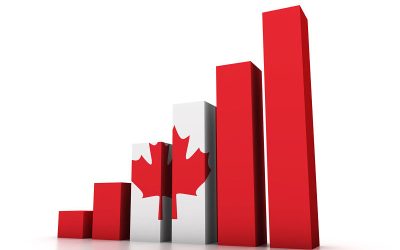Plastic recycling in Canada is a complex topic, as it is in much of the world. While most people understand the importance of recycling and the significant negative impact that plastic pollution is having on our natural environment, the processes and infrastructure that we have in place to effectively recycle plastic products, packaging, and single-use items is still limited. The current reality is that just 9% of plastics are getting recycled in the country, according to a 2019 study.
Part of the problem is the lack of processing capability in Canada to separate, sort, and shred plastic materials in order to prepare them for melting down into post-consumer recycled (PCR) resin that can then be reused in manufacturing. As innovation and technology in the plastics recycling space continues to improve and advance, and the need to eliminate plastic pollution gets increasingly critical, the opportunities and potential for creating a plastics circular economy in the country is increasing as well.
Government Action on Plastics
In an effort to further support the establishment and growth of the industry, both the federal and provincial levels of Canadian government are implementing policies and regulations that will shape how the industry evolves in the coming years. Recently, the federal government added plastic to its list of toxic substances under Schedule 1 of the Canadian Environmental Protection Act as part of the action plan to reach zero plastic waste. This move will have an impact on industry and society as a whole as we adapt and find new ways to make use of existing plastic resources instead of continuing to rely on ongoing virgin plastic production, although push-back from some industry players is already occurring.
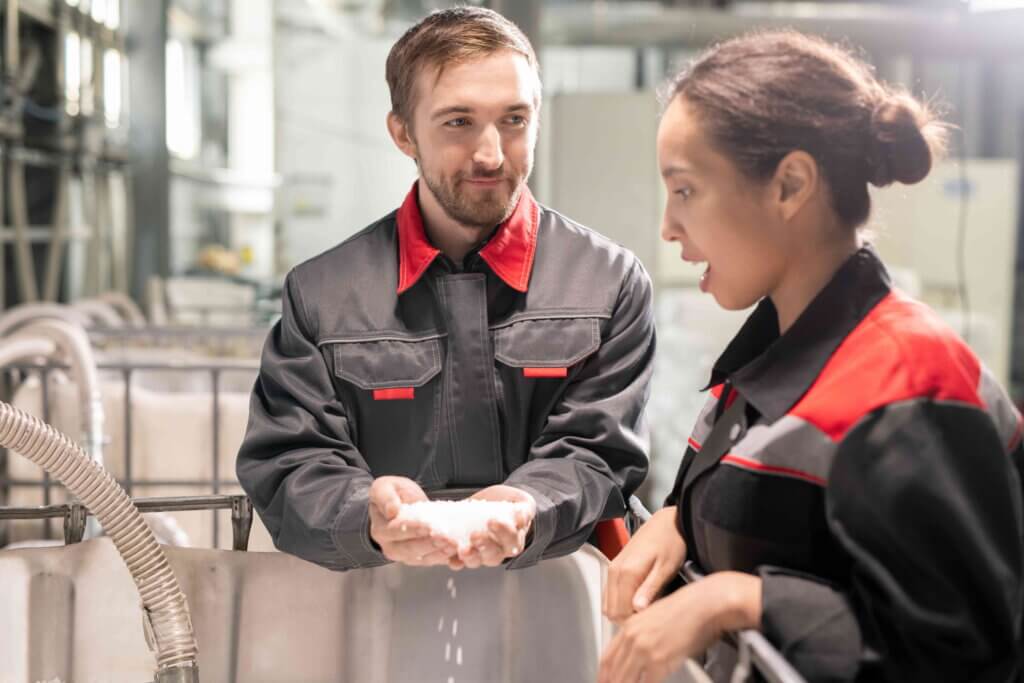
Plastics can be recycled by being melted into plastic pellets that can be used as a resource in manufacturing processes.
Another way to accelerate action in the plastics recycling space is to provide funding for research, design, and testing of new technologies that increase the use of PCR plastic in manufacturing. A number of recent programs and funds have addressed this problem, including the CleanBC Plastics Action Fund which the Alacrity Cleantech team helped administer, along with circular economy subject matter expert and industry partner, Synergy Foundation. Clean Coast, Clean Waters is another provincial example of funding that supports BC’s marine shoreline cleanup, including the collection of abandoned vessels, fishing nets, and “ghost gear” that produce plastic waste and pollution in our ocean and shoreline.
These actions have been great starters to addressing the Canadian problem of plastic pollution and the potential for additional support of a plastic circular economy is evident in the interest in funding programs such as these. Of course, there is room for more support as technologies and manufacturing processes continue to evolve and the need for a global reframing of plastic usage becomes important at every level.
Supporting the Canadian Plastics Circular Economy
The circular economy model is growing in British Columbia and Canada as a whole. This economic model is different from our current linear economy and is primarily based on three main principles.
- Design waste and pollution out of the economy.
- Keep existing products and materials in use.
- Regenerate natural systems.
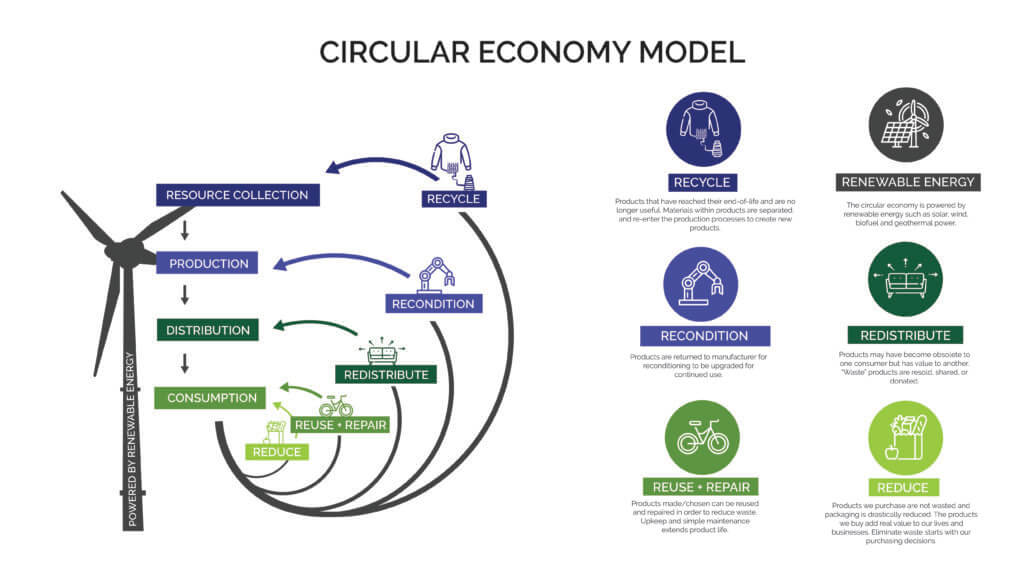
An overview of the circular economy model.
The CleanBC Plastics Action Fund was an initial step forward made by the Province of British Columbia through the Ministry of Environment and Climate Change Strategy. This initiative was a result of the CleanBC Plastics Action Plan that was published in 2019 after engagement and consultation with the public to identify policy priorities.
Industry is also playing an important role in advancing the circular plastics economy. Initiatives like the Canada Plastics Pact are also working to establish the foundations of a robust circular plastics value chain in which PCR plastic is a valuable resource that helps decrease the amount of plastic waste and pollution entering the environment.
What’s Next for the plastics recycling sector?
Through initiatives driven by both government and industry, a collaborative ecosystem can be established to ensure plastic recycling is prioritized and effectively addresses the gap in production, use, recycling, and reuse that Canada and BC currently face.
With the announcement of CleanBC Plastics Action Fund recipients, the next step in creating local supply chain connections for communities and industry stakeholders is being taken as recipients implement their projects. Focusing on selection criteria that included alignment, scale, feasibility, economic potential, innovation, and relative impact, as well as regional representation, diversity and inclusion, and supply chain links, we saw a wide range of applications that highlighted the keen interest and potential impact of plastics recycling projects.
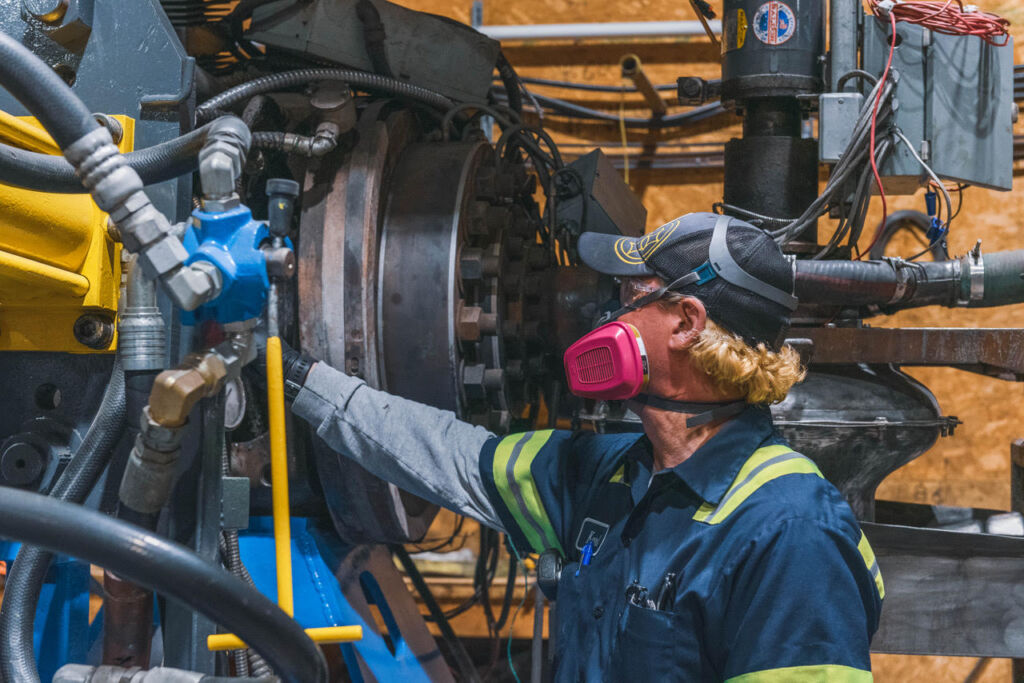
Photo courtesy of KC Recycling, one of the CleanBC Plastics Action Fund recipients.
Recipients of funding include larger industry players like KC Recycling, Recycling Alternative, Merlin Plastics, Plascon Plastics, and Reclaim Plastics, as well as smaller community-based organizations like Flipside Plastics, The Rogerie, and Kootenay Outdoor and Environmental Learning Society. Metaspectral is also receiving funds to bring artificial intelligence technology to the process of sorting consumer waste. We’re thrilled to see these projects receive support and are grateful to all fund applicants for taking the time to engage with us and send in their proposals.
Next week, a number of circular economy events and conferences will take place virtually to further explore the current state of the plastic circular economy sector and where we can and should go from here, including the Recycling Council of BC’s Circular Economy Conference.
And, on June 17th from 10am to 11am, we’ll be hosting a virtual panel discussion with industry stakeholders and a couple of recipients of the CleanBC Plastics Action Fund to get their perspectives on how we can further support evolution and innovation in this space. Register here if you’d like to attend!
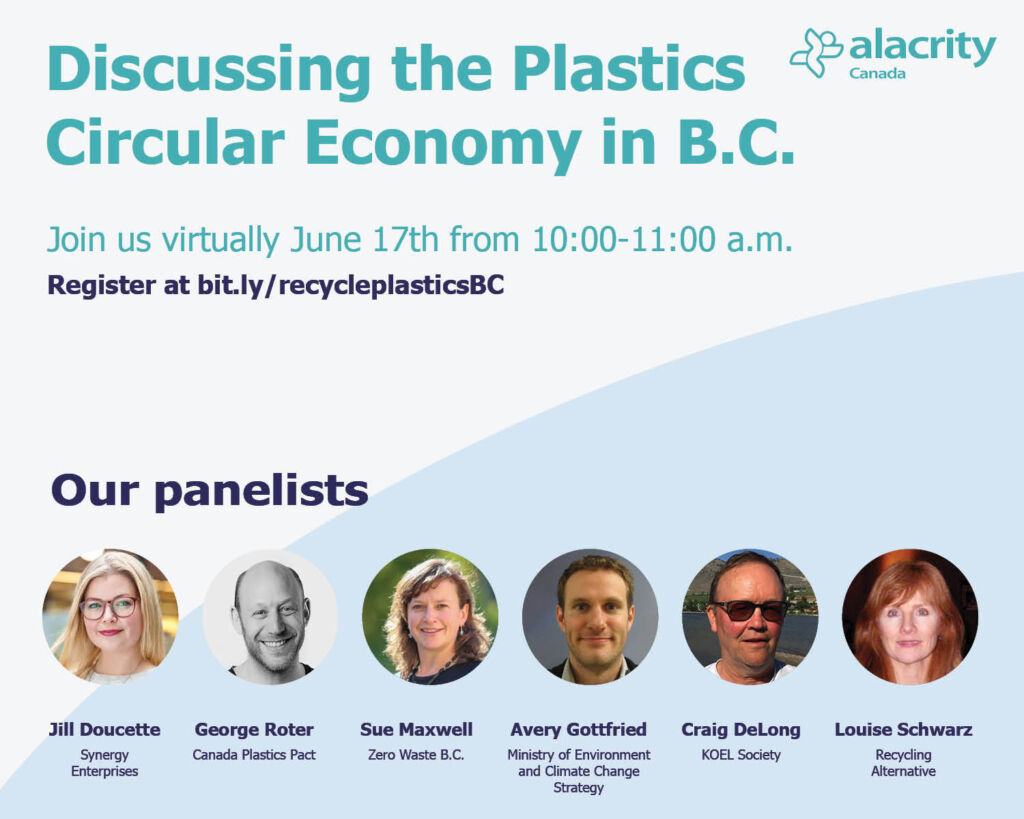
Visit our cleantech events calendar for more information on upcoming events.

